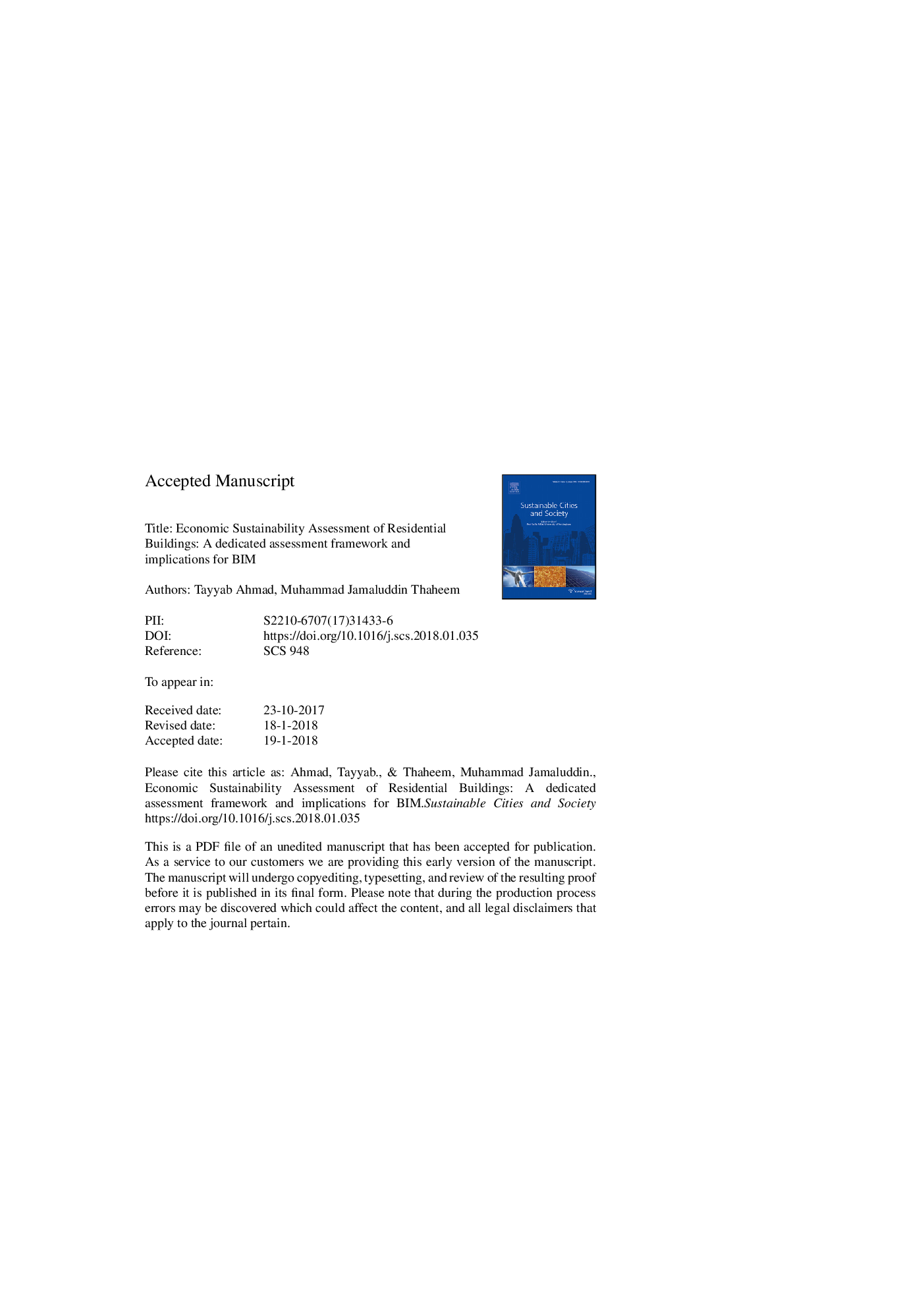| Article ID | Journal | Published Year | Pages | File Type |
|---|---|---|---|---|
| 6775479 | Sustainable Cities and Society | 2018 | 45 Pages |
Abstract
Tools for economic sustainability analyses are crucial for residential sector which is associated with high energy use. Along with the development of such tools, their effective implementation in building projects depend on their uptake by holistic design and modelling approaches, with BIM standing out as an exemplary case. Accordingly, the purpose of this study is to develop a fully representative economic sustainability assessment framework for residential buildings, with implications for BIM. A serious lag in research within the area of residential building economic sustainability assessment and use of BIM is realized from a systematic review of published studies. Through literature, a taxonomy of economic sustainability indicators, parameters and sub-parameters is developed, which helped design an economic sustainability assessment framework. An international survey and structured interviews are conducted to find the importance weights for the economic sustainability dimension as well as different framework constituents. The functionality of framework is validated through a case study, providing a conclusive value of 48.25% for economic performance of subject building, which is representative of the effectiveness of assessment for decision-makings. An extension within BIM environment is suggested to help foresee a futuristic integration of BIM with economic sustainability assessment.
Related Topics
Physical Sciences and Engineering
Energy
Renewable Energy, Sustainability and the Environment
Authors
Tayyab Ahmad, Muhammad Jamaluddin Thaheem,
